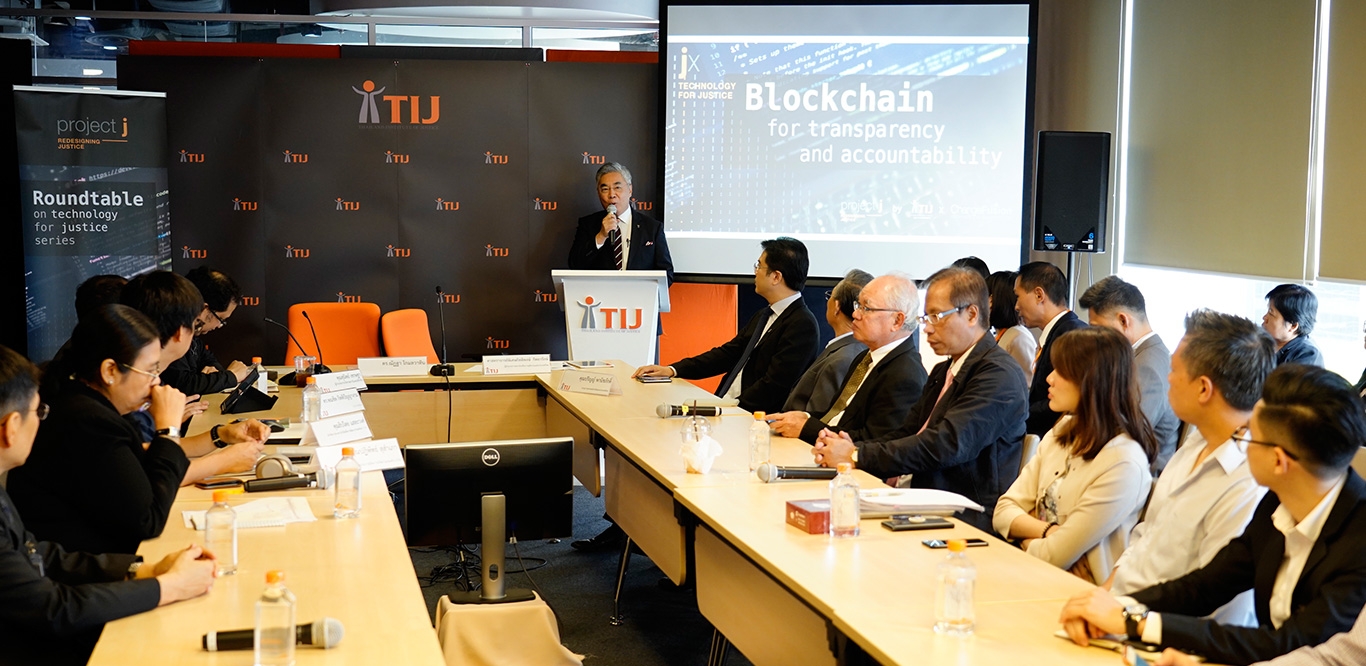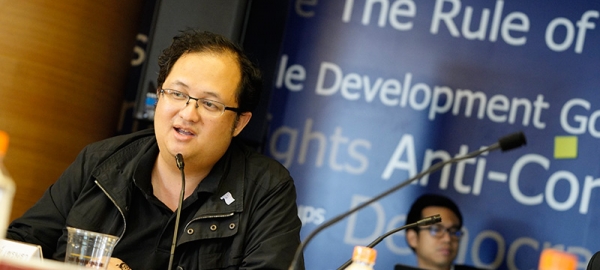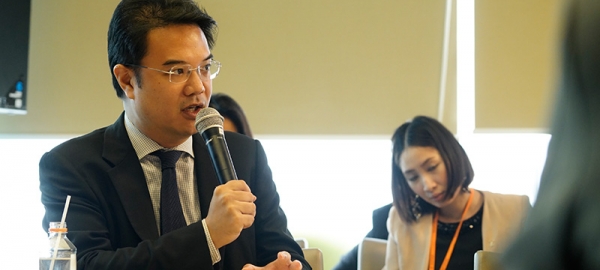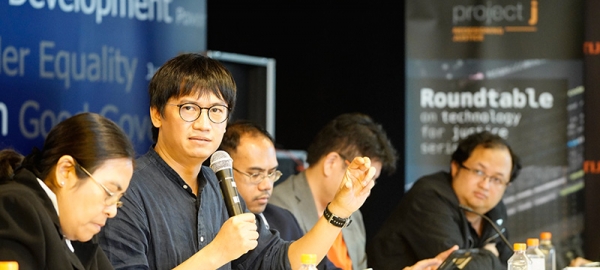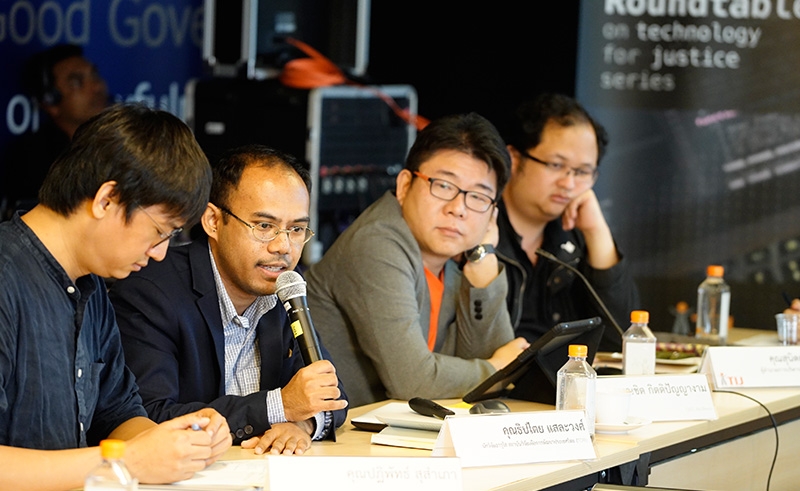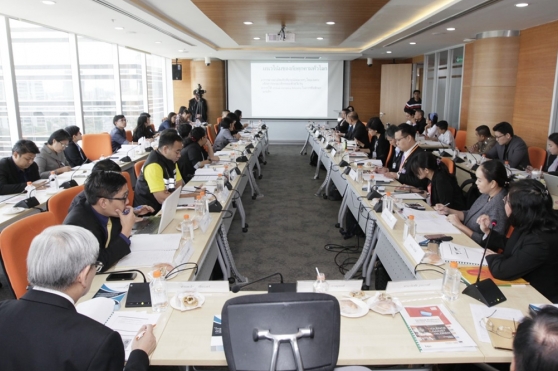TIJ’s Tech for Justice Session: Blockchain for Transparency, Empowering People for Better Access to Justice
The Thailand Institute of Justice (TIJ) together with ChangeFusion recently organized The Roundtable on Technology of Justice Series (Project j: jX Justice Experiment) on the topic of “Blockchain technology for transparency and accountability” to explore “New Solutions to Old Problems” through advanced technology such as Blockchain, a self-auditing network pledging to bring about greater transparency and higher levels of accountability.
The roundtable is the first of a series of activities under the TIJ’s initiative called “Project j”.
The initiative aims to establish a platform, “jExperiment” (jX) where interested partners can discuss solutions to justice through advanced technology. TIJ strongly believes solutions can only be achieved by involving all stakeholders in the effort to enhance justice through technology.
Several experts have made important contributions to the event: Mr. Sunit Shrestha, managing director of the Change Fusion Institute; Mr. Prinn Panitchpakdi, committee of the Stock Exchange of Thailand and professional committee of the National Innovation Agency; Dr. Panachit Kittipanyangarm, president of Thailand Tech Start up; Mr.Padipat Susampao, CEO of Open Dream; and Dr. Torpas Yomanak from Hands Social Enterprise and Anti-Corruption Organization of Thailand and Mr. Tippatrai Saelawong, senior researcher of TDRI.
In his opening remarks, Prof. Dr. Kittipong Kittayarak, executive director of TIJ, affirms “Blockchain brings transparency and shines a light on underperformance and inefficiencies in public services. It allows citizens and the media to hold governments to account, strengthening civil society and building more open societies.”
The advantage of Blockchain technology is the transfer of data through a decentralized environment. All data is then held in an interlinked network of computers, owned and run by the users themselves. The transactions recorded with Blockchain are stored in a secure and transparent manner and are very difficult to counterfeit by virtue of a public ledger. Thus, Blockchain technology holds a great potential for both peer-to-peer transactions and businesses in several industries.
Many countries and governments around the world are already experimenting the use of the Blockchain mainly to improve bureaucracy and solve issues of civil rights and public interest. For instance, Estonia has applied Blockchain to its identity card and civil rights procedures; South Korea has heavily invested in Blockchain technology for a more transparent election system; UNHCR uses Blockchain to store information on immigrants and offers them access to digital money for their own livelihood. Private businesses such as the diamond industry use Blockchain to monitor each step in the supply chain and verify products sources. Not least, the justice system has kicked started an innovative Application which makes use of Blockchain technology to store digitalized evidence thus, reducing falsification and many types of misconduct.
Mr. Padipat Susampao, CEO of Open Dream sees Blockchain as a good tool to bestow trust on each unit of the block that shares information, for its ability to trace and verify transactions, whilst Dr. Torpas Yomanak from Hands Social Enterprise and the Anti-Corruption Organization of Thailand introduces his 3P concept which foresees the use of interactive, inclusive, Blockchain-based methods such as, mobile applications in the anti-corruption domain to help governments get a better understanding of citizens needs and finally offer satisfactory solutions to their problems. In Dr. Yomanak words, Bockchain can help anti-corruption professionals establish a network that shares information and resources once only available to the single units, in an effort to develop more systemic and sustainable approaches to corruption.
Mr. Prinn Panitchpakdi, member of the Committee of the Stock Exchange of Thailand and member of the professional committee of the National Innovation Agency, explains that governments and their agencies utilize Blockchain to enhance the level of systems transparency and improve overall efficiency. Among those, Singapore Government has integrated Blockchain in its procurement policy while the U.K.’s Police Foundation applies Blockchain to all its stages from investigation, evidence collection, interrogation to court process, to ensure data security and reduce paper use.
Blockchain not only maximizes effectiveness and cost efficiency but also increases credibility. This is even more true for industries with long supply chains and challenging implementation of core labour standards such as, fishery, palm oil and rubber.
The Roundtable on Blockchain for Transparency and Accountability is the first in the Roundtable on Technology for Justice Series under the Project j: jX Justice Experiment. The platform is a starting point to better understand the concept of Blockchain, its potential to enhance the transparency and accountability of public organizations and its future applications particularly, to Thailand’ justice system. The platform will continue to discuss the state of the art of Blockchain and contribute to information propagation and consensus formation in the blockchain network.



